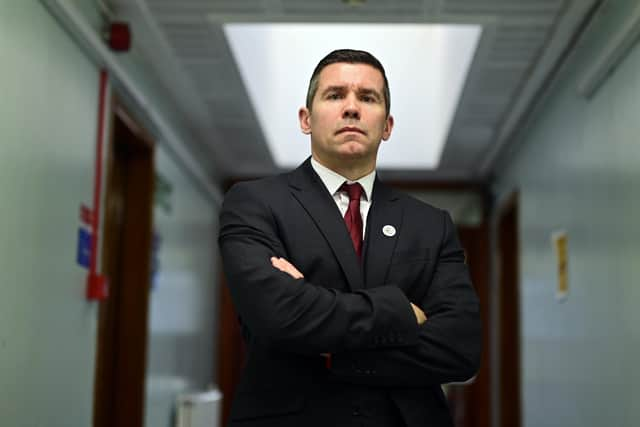Top officer warns Hate Crime Act could harm trust in police
A senior police officer has warned that Scotland’s new hate crime laws could damage trust and confidence in the force from both potential victims and perpetrators.
Police Scotland will begin enforcing the Scottish Government’s Hate Crime Act tomorrow, three years after it was passed by MSPs.
Advertisement
Hide AdAdvertisement
Hide AdThe law will create new stirring up of hatred offences for protected characteristics including age, disability, religion, sexual orientation and transgender identity. These extra provisions will add to the long-standing stirring up racial hatred offences, which have been in place since 1986.


Under the law, offences are considered "aggravated" if they are motivated by prejudice on the basis of set characteristics, which could influence sentencing by judges. Crucially, a criminal act must have occurred for the hate crimes aggravator to be applied.
Chief Superintendent Rob Hay, from the Association of Scottish Police Superintendents (ASPS), has warned that those who report hate incidents that don’t meet the criminal threshold could be left disappointed with the police response and those who are investigated but have not done anything wrong may feel “silenced” by officers.
The top officer has warned that a lack of public understanding about the new legislation could leave officers in the middle of dissatisfaction with the force about how it is being perceived to be enforcing the law.


Mr Hay said the ASPS’s concern is that the new law could lead to a “huge uplift” in reports that “could damage trust and confidence in the police”.
He said: “For us in Scotland, with a policing system that’s based in fundamental terms on policing by consent, it’s absolutely critical that we maintain that public trust and confidence and have the support of the public to enforce any particular piece of legislation.
“What we’re going to be asking police to do is identify the tipping point between what is offensive and when offensive becomes abusive and therefore is subject to the legislation.”
Mr Hay added that “if you have hopes of the police intervening at a particular level but actually the criminal threshold isn’t met, then potentially you are going to be potentially disappointed and lose trust in the police”.
Advertisement
Hide AdAdvertisement
Hide AdHe said: “At the other side of that, if you know fine well that something you have said does not meet the criminal threshold and yet it’s reported to the police and the police come and investigate you, then you in turn might feel that you’ve been stifled, that you’ve been silenced when you’ve tried to engage in public debate on the side of the the issue.
“It’s a very difficult position to place police officers into.”
A row has emerged over the reporting of non-crime hate incidents after Tory MSP Murdo Fraser was flagged for criticising Scottish Government transgender policy on social media.
Mr Hay warned that “we’ll still be recording details at that point”.
He added: “Actually, we might find ourselves in the position where a member of the public feels quite aggrieved for having their details recorded and kept for behaviour that doesn’t meet that criminal threshold.”
